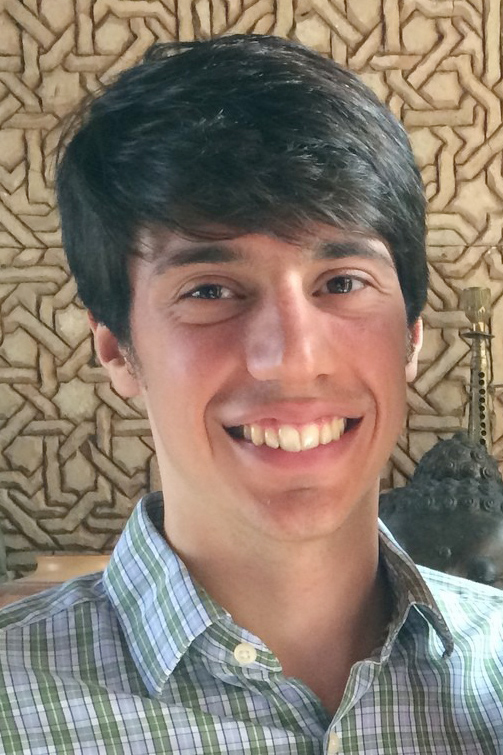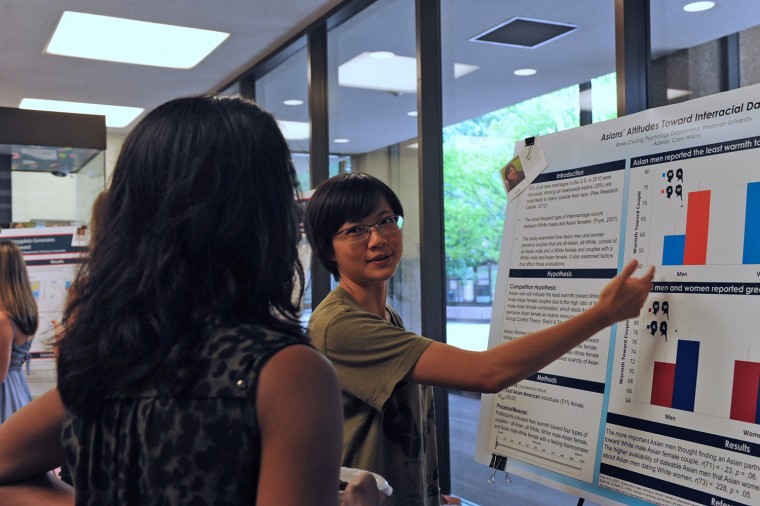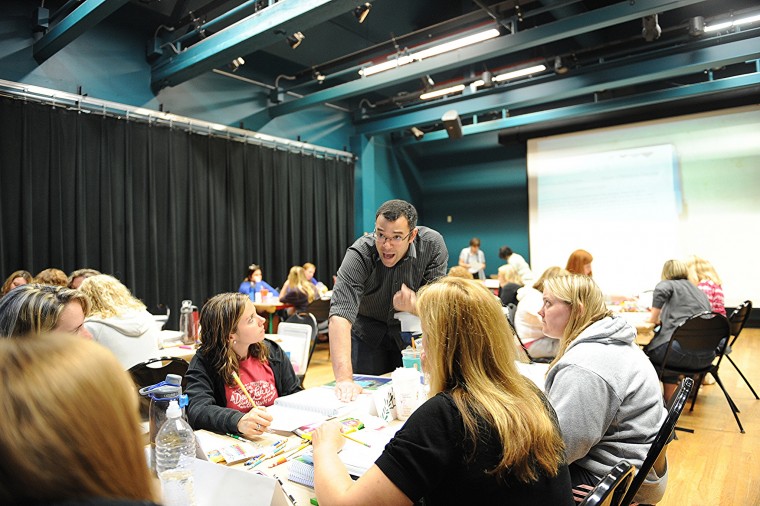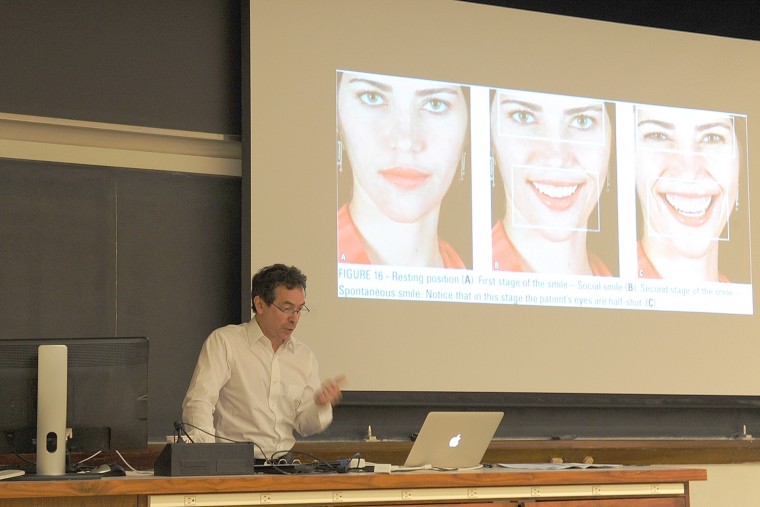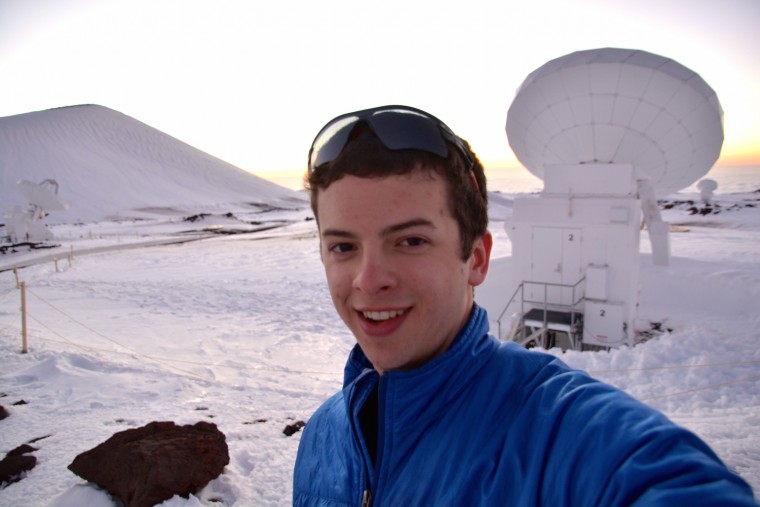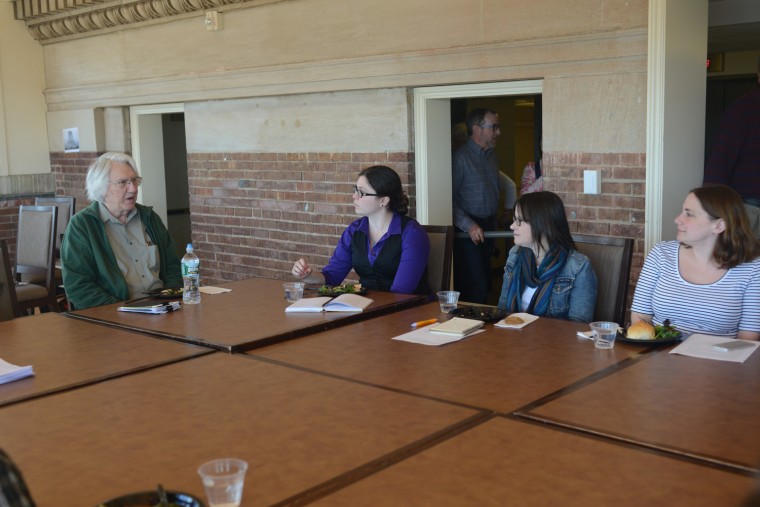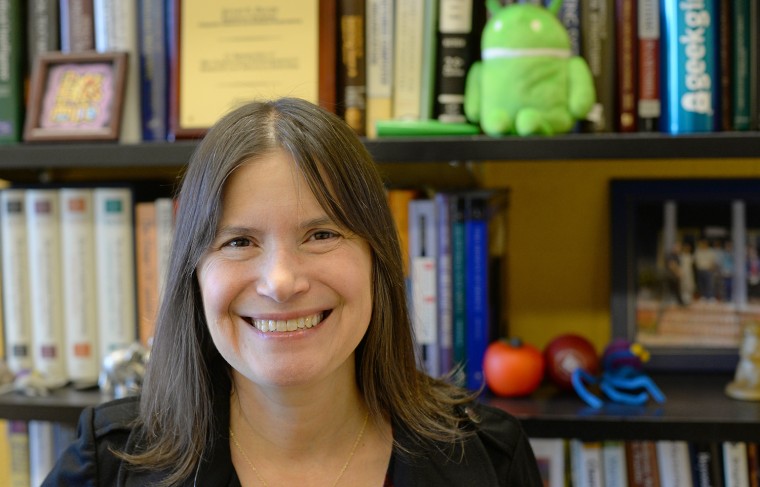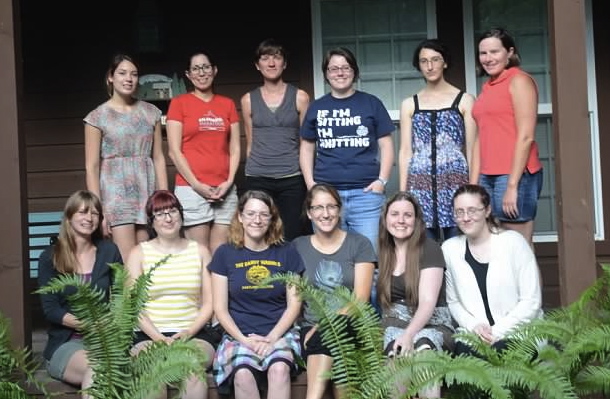Dan Licata, assistant professor of computer science, is one of 56 scientists in the country to receive a grant from the U.S. Air Force Office of Scientific Research (AFOSR) through its Young Investigator Research Program. The AFOSR is awarding approximately $20.6 million in grants. The Young Investigator Research Program is open to scientists and engineers at research institutions across the United States who received PhD or equivalent degrees in the last five years and who show exceptional ability and promise for conducting basic research. Licata, who received a PhD in computer science from Carnegie Mellon University in 2011, will use…
On July 30, Wesleyan's Summer Research Poster Session took place at Exley Science Center. More than 110 undergraduate research fellows from Math and Computer Sciences, Astronomy, Physics, Chemistry, Molecular Biology and Biochemistry, Biology, Earth and Environmental Sciences, the Quantitative Analysis Center, and Psychology presented research at the event. (Photos by Laurie Kenney) (more…)
This summer, almost 30 K-8 teachers from Middletown and Meriden are participating in the Intel Math Summer Course at the Green Street Teaching and Learning Center. The intensive 80-hour math content course is being co-taught by a mathematician and a math education specialist: Wesleyan's Cameron Hill, assistant professor of mathematics, and Shelley Jones from Central Connecticut State University. The course is part of Green Street's Math Institute, a program designed to get teachers excited about math, prepared for Common Core, equipped with a toolkit of activities to bring key math concepts into their classrooms through the arts, and more. “With…
#THISISWHY In this News @ Wesleyan story, we speak with Sam Factor '14, a graduate student in astronomy. Q: Sam, congratulations on completing your master’s thesis in astronomy! We understand you took your first astronomy class in the fall of your senior year at Wesleyan. What was your undergraduate major and how did your late-developing interest in astronomy come about? A: Thank you very much! As an undergrad, I majored in physics and computer science. During the fall of my senior year I took Introductory Astronomy (ASTR 155). I signed up for the course mainly because I wanted an interesting and relatively easy…
#THISISWHY On April 15, faculty and staff met to share their service- and project-based learning stories during an Academic (Technology) Roundtable lunch at the Allbritton Center for the Study of Public Life. A(T)R lunches are designed to promote conversation, cooperation and the sharing of information, ideas and resources among faculty members, librarians, graduate students and staff. Barbara Juhasz, director of service-learning, associate professor of psychology, associate professor of neuroscience and behavior, led the session, providing an overview of service-learning at Wesleyan as well as the variety of ways that service can be used as a pedagogical tool. Other speakers included Rob Rosenthal, director of…
Q: Welcome to Wesleyan, Professor Burge! Please fill us in on your life up to now. A: I’m originally from Michigan, and attended undergrad at Michigan Tech. I moved out to Massachusetts and worked on radar systems for quite a few years. I did a lot of off-site work traveling all around the country; it’s exciting to see the products you build in action. I always planned to go back to graduate school, and I decided to pursue a master’s in computer science at Worcester Polytechnic Institute. I started out there part time, but then an opportunity arose and I…
Experienced programmers and tech newbies alike gathered Sept. 5-7 for WesHack 2014, a two-part conference that included a daylong tech crash course for students, alumni and friends, and a 48-hour “Hackathon” app-development competition. WesHack was founded in May 2013 by Julian Applebaum ’13, Evan Carmi ’13 and Anastasios Germanidis ’13, who, shortly before graduation, “decided Senior Week would be even more fun if they stayed awake for 36 hours writing software to solve the pressing problems of Wesleyan students,” according to the WesHack website. In fall 2013, WesHack 2.0—a second Wesleyan-themed Hackathon and day-long intro tech bootcamp for students and…
Mathematics Ph.D. candidate Alicia Marino recently attended a four-day workshop in Portland, Ore. studying various aspects of computational number theory. The workshop focused on Sage, a mathematics software package, developed by and for the mathematical community. The event included talks, tutorials, and time spent in small project groups developing Sage code. Participants worked to enhance the Sage library and discussed ways to increase the number of women in Sage development. The workshop ran July 28-Aug. 1. Marino, who holds a bachelor's degree in computer science, attended the conference to sharpen her programming skills. "My initial desire to attend the workshop…
Four staff from Information Technology Services and one student spoke at the NorthEast Regional Computing Program (NERCOMP) Annual Conference held in Providence, R.I. on March 26. Karen Warren, director of user and technical services for Information Technology Services, led a poster session on "The Best thing to Ever Happen at Wesleyan: Justifying and Sustaining LyndaCampus." Warren explained the successes of Wesleyan's LyndaCampus implementation backed by usage data statistics, cost comparisons, and a description of the cross-departmental approach used to garner support campus-wide. The poster featured quotes and anecdotes from Wesleyan student users underscoring the benefits of the campus (versus a limited)…
While technology at Wesleyan is growing by leaps and bounds, the computational capacity is growing by gigaFLOPS and now, teraFLOPS. Not to be confused with the prehistoric pterodactyl's beach footwear, a teraFLOP is a term used in high-performance computing to quantify the rate at which computer systems can perform arithmetic operations. TeraFLOPs can perform one trillion operations per second (S), and for scientists at Wesleyan, this means calculations can be done up to 50 times faster with the new computing cluster, installed during the summer 2013. "The new cluster has been revolutionary in my own work," said Francis Starr, professor…
James Reid, professor of mathematics, emeritus, died Oct. 27. An authority on algebra, Reid joined the Wesleyan faculty in 1969 as associate professor, becoming professor of mathematics in 1971. Previously, he had held faculty positions at Syracuse University and Amherst College, and he also had served as a research associate at Yale University. He obtained his PhD from the University of Washington, where he was an instructor. Reid published in scholarly journals throughout his career, presented numerous invited lectures, and was an adviser for 14 PhD students, 11 master’s degree students, and six undergraduate honors theses. Among his colleagues, he…


